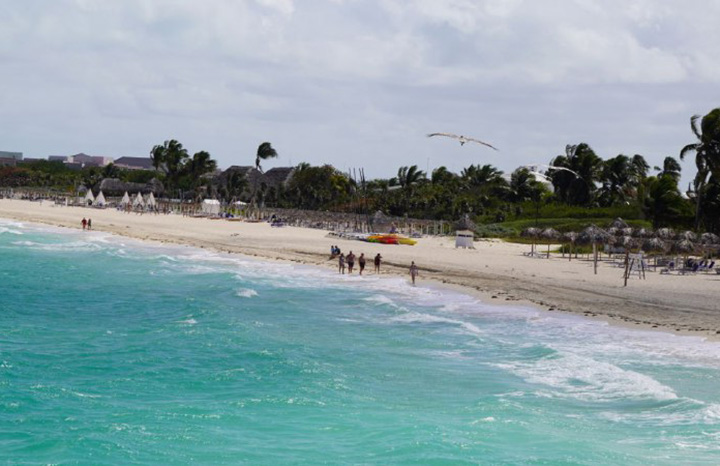
Ciego de Ávila, Feb 17t.- Recommendations for a more efficient management of natural resources carried out the international project Sustainable Tourism to eight hotel facilities of the destination Jardines del Rey, in the northern fall of the province of Ciego de Ávila, where this initiative financed by the Global Environment Facility intervenes.
Evelyn Marichal Arbona, an aggregate researcher at the Coastal Ecosystem Research Center (Ciec) and coordinator of the aforementioned project in the Ávila’s territory, highlighted to the Cuban News Agency that the suggestions derived from a recent diagnosis of terrestrial biodiversity and the quality of the waters in lagoons and beaches.
Directors of the Iberostar Origin Daiquirí, Starfish Cayo Guillermo and Vigía Cayo Guillermo, Meliá Cayo Coco, Meliá Costa Rey, Mojito, Sol Cayo Coco and Trip Cayo Coco have tools for decision-making aimed at operations more consistent with the environment, whose conservation is essential for the sustainability of the tourist product they offer.
Suggestions by specialists from the Institute of Ecology and Systematics, the Office of Environmental Regulation and Safety, and Ciec, entities belonging to the Ministry of Science, Technology and the Environment, are aimed at the protection of beaches, coastal dunes, native flora and fauna, some of these elements defined as competitive advantages of Jardines del Rey.
Among the main proposals for better management of the environment is the redesign and relocation of constructions to promote the dynamics of the coast and protect the dunes and spas, the rehabilitation of the vegetation cover of the aforementioned mounds of sand, the improvement in the management of waste and liquid waste, as well as transformations in the mechanisms of cleaning beach.
Experts also stressed the importance of increasing the number of information and orientation signals in the bathing areas and their vicinity, with the aim of highlighting natural values and the need to protect them.
El #turismo contribuye al logro de los @Cooper2030ods referidos al crecimiento económico, la disminución de la pobreza, creación de empleo, promoción de la cultura local y la utilización sostenible de los recursos marinos.@citmaciego @OGAmbienteCuba pic.twitter.com/DbdMJCZoTt
— Román Romero López (@romanrl87) February 17, 2025
This destination is characterized by the abundant presence of birds, reptiles, butterflies, bees, and other significant species that make the Coco and Guillermo keys ideal spaces for nature tourism.
The boards of directors of the hotels involved in Sustainable Tourism assessed the information provided and the knowledge transferred for the improvement of their work in order to preserve ecosystems that make a difference in the destination and are indispensable to develop sun and beach tourism as a fundamental modality.
Officially called "Incorporating biodiversity conservation and climate change mitigation in the sustainable development of tourism in Cuba," this is a project of the Environment Agency, funded by the Global Environment Facility (GEF) and implemented by the United Nations Development Programme for the Ministry of Tourism, considered the largest beneficiary.
The actions are carried out in 18 hotel facilities located in the tourist destinations Varadero and Jardines del Rey, located in the provinces of Matanzas and Ciego de Ávila, respectively, for a period of six years (2023-2029).
It foresees results such as strengthening the regulatory and economic-financial institutional framework for environmental sustainability in the Cuban tourism sector, the integration of biodiversity conservation in this area, demonstrations of standards, procedures and low technologies in greenhouse gas emissions.
It seeks to monitor and evaluate the impact of the actions being carried out, on the basis of the mechanisms of environmental and social safeguards and incorporating a gender perspective to promote the principles of equality and social equity in intervention sites.
It will provide the necessary incentives for the tourism sector to change its usual dynamics of operations and improve long-term sustainability, for which they establish new paradigms and bet on establishing local alliances through participatory processes, so that all actors in the value chain can contribute to transformations at the destination level.
It will also promote the implementation of management systems to certify hotel facilities. (Text and Photo: ACN)